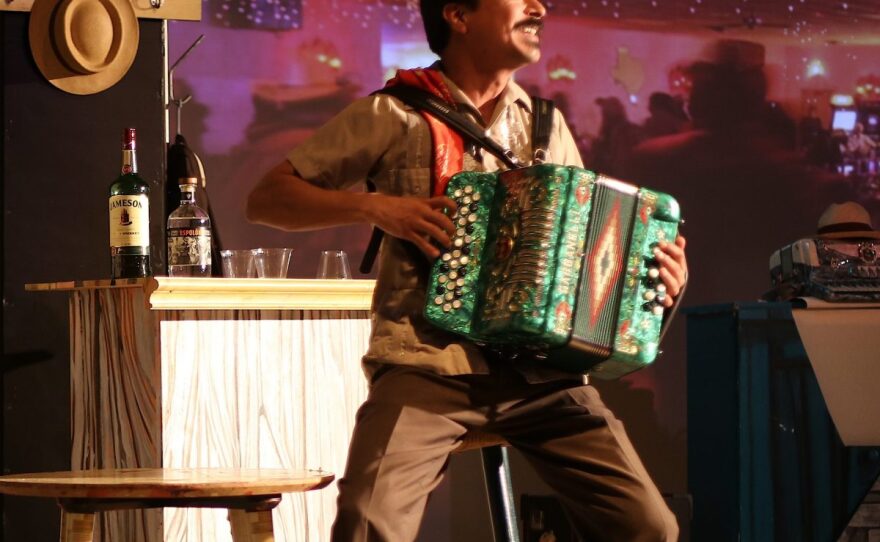San Diego Rep’s Latinx New Play Festival celebrates giving voice to underrepresented communities this weekend. Three of the playwrights discuss what inspired them and what stories they wanted to tell.
Inspiration can come from many places or just one.
"Anger inspired me. That's what inspired me," said playwright Rachel Lynett.
She hit a boiling point after Jennifer Krug confessed to being a racial imposter.
"And that deeply upset me because she was a white woman specifically pretending to be Afro Latina. And I'm Afro-Latina," Lynett said. "I have had to fight and claw my way into just getting other people to recognize my identity. And all this white woman has to do was tan her skin. And that's just really, deeply frustrated me."
That anger and frustration led to the play "Black Mexican" in which a student questions whether her professor is actually Cuban.
"All of the characters are trying to figure out exactly what does it mean to be Latino, Latina," Lynett said. "And so it's kind of an exploration of what does that mean to be part of this identity that encompasses so many different countries that are all so different? And also, who do we give access to our culture? Who do we keep out and why?"
Lynett specifically sets her play in a city she describes as one that thinks it’s liberal because that’s another source of anger.
"I kind of really want to say, don't try to put this in like a Southern town where they don't know better," she said. "No, this is a liberal town where people claim to embrace diversity. And yet this still keeps happening."
But Daniella DeJesus cites Disney’s “Pocahontas” and an epiphany she had as inspirations for her play "Get Your Pink Hands Off Me Sucka and Give Me Back."
"I remember this moment in the sixth grade when I was learning about the colonization of the Caribbean and the Americas," she said. "And learning how old Pocahontas probably actually was that she was somewhere between the ages of 11 and 14, and me realizing that I'm 11, and there's no way that, like me, having a romantic relationship with a 30-year-old man is OK. Like, that's messed up."
This led her to ponder the insidiousness of colonization as well as a reckoning with one’s own part in it. In her play, this manifests itself in an exploration of intergenerational trauma.
"The idea that trauma that happened to an ancestor three, four, five or more generations ago can manifest as an anxiety attack or a particular insecurity is really interesting to me," DeJesus said. "And I like to think that because of that, in a way that history is is always happening, like it's not in the past. It like reverbs through what we're experiencing right now."
The past was a major source of inspiration for Nicolas R. Valdez’ play “Conjunto Blues.”
"It's really kind of a nod, an ode, if you will, to my grandparents' generation, those who really coming out of this Depression Era experience, really, I think, kind of created a pathway for a Mexican American identity," Valdez said.
Informing that identity was conjunto music, which Valdez said was "the origin of accordion-based Mexican American music."
Latinx New Play Festival 2021 Schedule
Friday, Sept. 3
• 4 p.m. Directing panel
• 5 p.m. "Black Mexican" by Rachel Lynett
• 7 p.m. Opening reception
Saturday, Sept. 4
• 11 a.m. Designer showcase
• Noon "(trans)formada" by lily gonzales
• 2 p.m. Dramaturgy panel
• 3 p.m. "Get Your Pink Hands Off Me Sucka and Give Me Back" by Daniella De Jesús
• 6 p.m. "Conjunto Blues" spotlight performance, by Nicolas R. Valdez
• 7:30 p.m. Reception
Sunday, Sept. 5
• 11 a.m. Historical Context Panel
• Noon: Local project panel
• 1 p.m. "A Skeptic and a Bruja" by Rosa Fernandez
• 3 p.m. Closing playwrights panel
"The accordion in conjunto music, I think, really is the soundtrack to the Mexican-American working-class experience of the 20th century. When people listen to the accordion, I think it's very nostalgic," he said. "It sort of transports you to another time in place. And it is a very expressive instrument in the way that it breathes and the variations of the tones."
The instrument becomes a character in the play, which explores how conjunto music developed as an expression of cultural resistance and liberation. Valdez carries on that tradition of activism in his play, which was inspired by the legacy of Luiz Valdez’ Teatro Campesino.
"And it's theater with the purpose, right? Like an urgency, and there is a magic that happens in that engagement in live theater," Valdez said. "There's this reciprocity of energy, and it gives you an opportunity to address very serious issues, to ask really important and difficult questions, but in a way that is accessible and entertaining."
And that can provoke a conversation and inspire other people to tell their own stories. You can enjoy the stories these playwrights have to share as part of San Diego Rep’s Latinx New Play Festival.
This year's festival will be held both online and in the Conrad Prebys Aztec Student Union Theatre, which is made available to the festival through San Diego State University and is part of SaRep’s partnership with SDSU.






